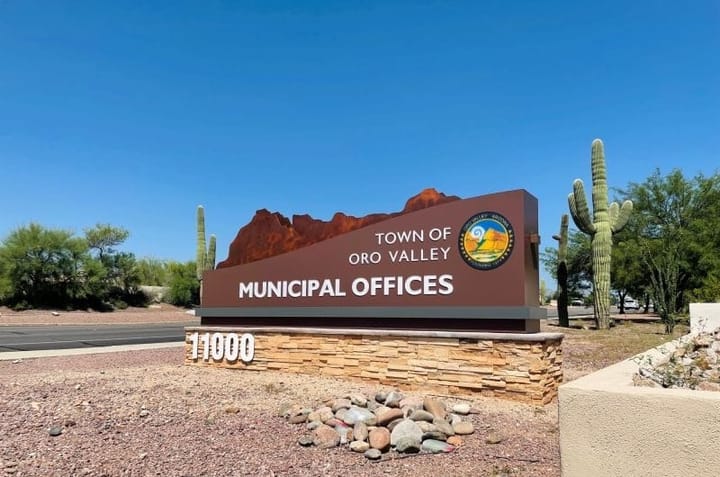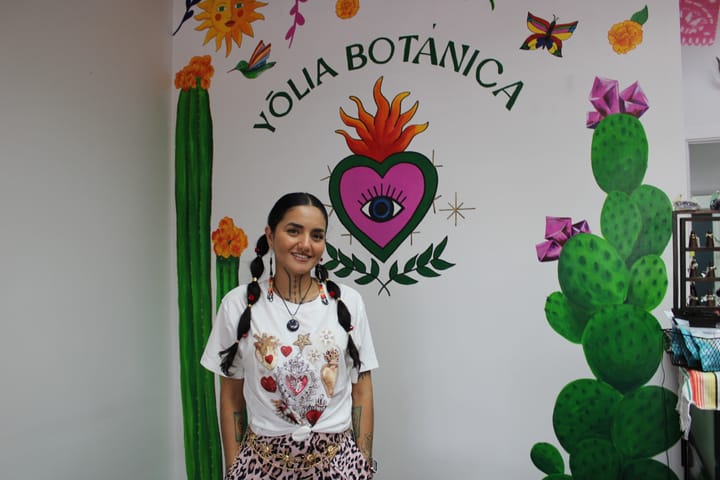Urban farming is growing in popularity in Pima County
The benefits of urban farming include expanding consumers’ access to locally raised products, repurposing warehouses and other empty spaces, and bolstering community pride.

Agriculture brings $23.3 million into the state each year, but the industry goes far beyond the sprawling fields and ranches that often come to mind.
Urban farming is also alive and well in the state, with a new generation of entrepreneurs joining the mix. Many of these farmers aim to celebrate the region's rich agricultural heritage and community spirit.
But more importantly, they’re helping to address climate change and bring sustainability to the industry, amidst rising concerns about the carbon footprint of food.
The benefits of urban farming are significant and include expanding consumers’ access to locally raised products, repurposing warehouses and other empty spaces, and bolstering community pride.
A trip to any of Pima County’s many farmers markets will reveal the growing local popularity of urban farming, with products from micro-farms, backyard ranches and dairies, community gardens and more.
Heirloom Farmers Market is open year-round and operates five weekly markets across Pima County.
In Oro Valley, Saturday’s market at Steam Pump Ranch draws crowds early and boasts dozens of vendors, including several urban farmers.
Elizabeth Robb owns and operates Elizabeth’s Garden and is a regular seller at the Steam Pump Ranch market.
Robb says that what she loves most about selling at the farmer’s market is being a part of the community.
“I love talking to the people,” she said. “I learn so much and it's so much fun. I love this market, it's just got a really good feel and attitude.”

She thinks being a part of the market might have helped with her run for Oro Valley Town Council earlier this year, saying that being out in the community has helped her to get to know her constituents. She said her time at the market has allowed her to forge genuine connections with other vendors, as well as shoppers.
“I already knew a lot of people, so I’m sure that didn't hurt,” she said. “And they know me, because … here I am, every Saturday.”
Elizabeth’s Garden sells a wide variety of products including eggs and poultry from chickens, geese, turkeys, quails, and ducks.
She also sells pickled quail eggs, a recipe of her own making and one of her most popular products, and turkey feathers, which she says are purchased for everything from art to cat toys.
Robb’s wares include baked goods, citrus, mint and more, depending on what’s in season.
“Anything the garden is producing, anything the yard is producing,” she said.
Michael Morse’s Inch by Inch collects and cultivates waste from red wiggler worms to make fertilizer. He and his wife have been operating the business for 7 years, setting up shop at the Steam Pump Ranch to help local farmers naturally fertilize their crops.
“We sell the worms, but we also sell castings, which is worm poop,” he said. “It looks like dirt, but it doesn't leave you dusty and dirty. It's very clean that way.”
Morse said worms can process green food, carbon, wood chips, leaves and more, turning it into nutritious food for plants and soil.
Inch by Inch’s services go beyond just selling worms and their waste. An associate helps him test soil samples from his customers around Tucson. He said he hopes someday to team up with the University of Arizona to look into how worms can aid in conservation.
“I would love to see the school do something like that and have it published,” he said.

John De Lorenzo is co-owner of Desert Pearl Mushrooms, which uses a process called Aquaponics to help with cultivation.
“Aquaponics is using live fish culture to produce nutrient water to produce plants, vegetables,” he said. “We had some successes and trials with that and found it was a lot more difficult than we thought.”
When they had enough stock to take to the market, they found that mushrooms were their best-seller and switched their focus to solely focus on mushroom production.
An indoor culinary mushroom farm, Desert Pearl produces about 600 pounds of fresh mushrooms each week. They sell to local restaurants, as well as a few grocery stores, including Time Market and 5 Points Market.
During the pandemic, with very few restaurants looking to them for supplies, Desert Peal Mushrooms was forced to reorganize and move to a small warehouse in order to stay in business, De Lorenzo said.
But it was farmer’s markets that saved them.
“Covid-19 was a showstopper for us, because all the restaurants closed down for like a half of a year,” he said. “We started selling directly at farmer’s markets…and that really helped us to stabilize. When restaurants go down, farmer’s markets go up and local groceries kind of bridge the gap.”
Desert Pearl grows a wide variety of mushrooms, including lion’s mane, cordyceps, reishi, and turkey tail.
They also produce and sell naturopathic remedies and treatments, all made from the mushrooms grown in his establishment.
“Liquid mushroom extracts are dual phase extracts of water and food grade ethanol,” he said. “They’re alcohol tinctures that people can take directly by mouth or under the tongue, or mixed with any beverage.”
Samantha Callicutt is a Tucson Spotlight reporter and graduate student at the University of Arizona. Contact her at Scallicutt@arizona.edu.
Tucson Spotlight is a community-based newsroom that provides paid opportunities for students and rising journalists in Southern Arizona. Please support our work with a paid subscription.





